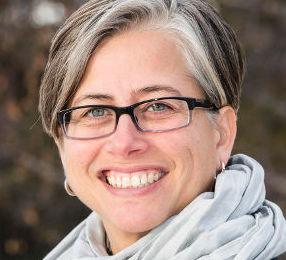Barrie woman celebrates Metis decision

By Cheryl Browne, Barrie Examiner
A Barrie Métis woman is winging her way across the province celebrating the Supreme Court’s unanimous decision in the Harry Daniel’s case.
As a lawyer, Margaret Froh, associate chief operating officer of the Metis Nation of Ontario, understands the ruling and what it can and can’t do for the nation’s Metis.
In a jurisdictional game of chess that’s been playing out since Canada’s original Constitution was signed in 1867, approximately 600,000 Métis have now been declared to be on par with Canada’s formally recognized First Nations and the Inuit.
“First and foremost, it’s vindication that the Metis are aboriginal people and we can have a formal relationship with the government,” Froh said. “And then we can ask, how do we achieve fairness? We’re not looking to take away anything from anybody else, we’re just looking for our rightful place at the table.”
For the past 150 years, Métis have been asking for representation by the federal government, but have been told to deal with provincial governments, Froh said.
“It was the government saying, ‘no, not us, go talk to the other guy’ with the provinces saying the same thing. Now, that question’s been answered,” she said.
Froh spoke from a car barreling down the highway entering Dryden, more than 1,600 kilometres north of home on the campaign trail for the presidential role in the upcoming May 2 Métis council elections.
Froh and her husband live in Barrie in what’s considered to be the Georgian Bay Metis community. As an educator, she is also past-president of the Indigenous Bar Association, and has acted as legal council for the Ontario First Nation. She currently works with the Chippewas of Rama First Nation and the Métis.
In last week’s column in the Sudbury Star, Froh said the Daniel’s decision doesn’t change the identity of the Métis people, and won’t impact their harvesting rights.
Froh said Métis will now begin negotiating a nation-to-nation relationship with the the federal government on land, programs and services.
“Things that are going to have real and lasting benefits for our citizens. This is the Métis nation’s opportunity to negotiate self-government,” she said in the Sudbury article.
Barrie’s Métis Nation Region 7 councillor Pauline Richardson has had to prove her and her family’s identity by searching back into the Canadian census files and church records – before 1867 – to provide information to the government proving her aboriginal lineage.
Métis have the unusual distinction of being a group of people of mixed race, between northern indigenous people, the French and Scottish settlers of the time.
The women who met and married settlers were quite often asked to leave their villages and set up homesteads with their mixed-race offspring, which over several generations, became a unique group of people called the Métis.
In 1982, they were formally recognized by the Canadian government as a distinct aboriginal society but it took until April 14 this year to have their rights recognized at the federal government level.
As a Canadian aboriginal person, Richardson said she had to choose if she would follow her mother’s lineage or her father’s Métis heritage.
“You have to self-identify as Métis. I wanted to preserve my language and my culture,” Richardson said. “One of my brothers won’t identify at all, he said it didn’t give him any benefits.”
But since the Daniel decision, Richardson said she’s been receiving more queries about how people can identify as Métis.
As a councillor, she said people are requesting funding from the government for better education opportunities for their children, affordable housing, land claims and programs and shelters for women.









Leave a Reply